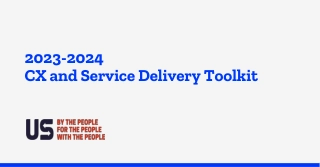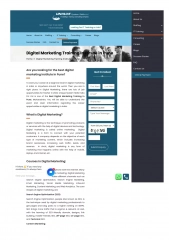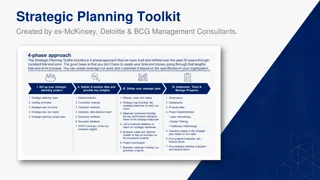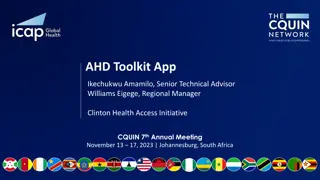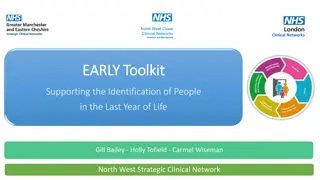
Improving Breakfast Participation for Better Academic Performance
Explore the importance of breakfast in academic success, addressing concerns and goals to increase participation. Learn about the nutritional and academic benefits, such as improved behavior, test scores, and cognitive functions. Discover the impact of breakfast on student performance and how to promote a positive learning environment. Overcome challenges like tight budgets and busy schedules to enhance student well-being through better breakfast quality and participation.
Download Presentation

Please find below an Image/Link to download the presentation.
The content on the website is provided AS IS for your information and personal use only. It may not be sold, licensed, or shared on other websites without obtaining consent from the author. If you encounter any issues during the download, it is possible that the publisher has removed the file from their server.
You are allowed to download the files provided on this website for personal or commercial use, subject to the condition that they are used lawfully. All files are the property of their respective owners.
The content on the website is provided AS IS for your information and personal use only. It may not be sold, licensed, or shared on other websites without obtaining consent from the author.
E N D
Presentation Transcript
Breakfast matters Current situation Goal: increase participation Addressing concerns Next steps
Nutritional Benefits Academic Benefits
Energy for mental and physical activities Higher nutrient intake Fewer visits to school nurse
Increased test scores Enhanced cognitive functions Increased attentiveness in class Improved behavior Decreased absences
Improved behavior and concentration contributes to positive learning environment Helping students learn and perform better Promoting breakfast promotes school health Improving breakfast quality and participation can become a part of local wellness policies
Tight budgets Busy lives Not hungry yet Long commute
Approximately 13 million children participated in the School Breakfast Program in SY 2012-13 Nearly 11 million of those children eligible for free and reduced price meals Breakfast participation has risen from previous years but still lags behind NSLP participation
Free and Reduce Price Student Participation in NSLP and SBP in FY 2012 (Millions) 25 Millions of Students 20 15 Students 10 5 0 Lunch Breakfast
100 99.8 99.6 99.4 99.2 Lunch 99 Breakfast 98.8 98.6 98.4 Free and Reduced Student Participation Rates
Not enough time Bus schedule Lack of personnel to supervise Students prefer socializing outside Lack of administrative support Stigma
Direct certification Enhance outreach Provisions 2 and 3 Implement alternative serving methods Breakfast in the classroom Grab 'n' Go Breakfast after first period
Children have time after arriving at school Increases participation Reduces stigma Teachers can accomplish administrative tasks or nutrition education while students eat
Planning and coordination make breakfast in the classroom run smoothly Important to gain support from key players such as principals, teachers, food service staff and custodians
I felt I had enough to do with preparing for teaching that to have breakfast in my classroom would just be extra work and a big mess, but I found that I barely have to do any work at all. The kids are so much better behaved that my lessons go much smoother. I would want to tell other teachers that it may seem like a hassle, but it really is minimal work with a lot of positive payoffs I would be upset now if they took the breakfast program away. - Maryland Public School District
Quick and easy Can reduce tardiness Requires minimal staff Unconstrained by cafeteria space Can be adapted for use in conjunction with mobile carts or meal service on school busses
Meals prepared and packaged before start of school day Carts conveniently located May be provided on school bus if special arrangements are made Students responsible for placing trash in designated bins
Bus schedules not an issue Students enjoy breakfast In the cafeteria In the classroom Grab 'n' Go A nutrition break
Scheduling is important Second chance breakfast for students who miss out in the morning Particularly helpful in high schools where teenagers start early and don t feel hungry until later in the day
Allow schools to offer breakfast at no charge to all students regardless of income. May be implemented only for breakfast, if school desires
Simplify paperwork Streamline meal service Give all children in school access to a nutritious breakfast Increase participation Reduce stigma
Most useful in schools with high percentages of free and reduced price students Potential sources of additional funding include: state agencies, district governments, foundations
Involving key stakeholders Involving the community Forming partnerships Using local wellness committees Marketing
Current Strategies [example: we use Provision 2] [example: we post announcements in school bulletins]
Challenges [example: participation rates are low] [example: need more staff/administrative support] [example: kids don t have time to eat]
Future Strategies [example: pilot breakfast in the classroom] [example: meetings with key stakeholders] [example: send home flyers in Spanish]




